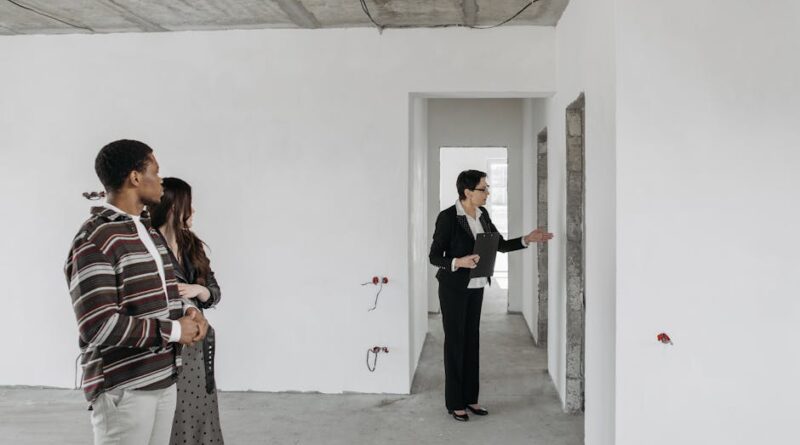Future-Proofing Your Real Estate Business: Navigating the Ever-Changing Market
Welcome to the dynamic world of real estate, where trends, technologies, and market conditions are constantly evolving. As a real estate professional, staying ahead of the curve is vital to not only surviving but thriving in this competitive industry. The key to long-term success lies in future-proofing your real estate business preparing it to withstand the challenges of tomorrow while taking advantage of emerging opportunities. In this comprehensive guide, we will explore the strategies, tools, and practices you can implement to ensure the resilience and growth of your real estate business in the face of an ever-changing landscape.
The Digital Transformation of Real Estate

In recent years, the real estate industry has undergone a significant digital transformation, revolutionizing the way properties are bought, sold, and managed. From online listings and virtual tours to digital marketing and e-signatures, technology has become an integral part of the real estate ecosystem. Embracing digital tools and platforms can streamline processes, enhance customer experience, and drive efficiencies in your business operations.
Harnessing Data and Analytics

Data is the new currency in the real estate industry, providing valuable insights into market trends, customer preferences, and investment opportunities. By leveraging data and analytics, you can make informed decisions, identify growth areas, and optimize your business strategies. Tools like CRM systems, market research reports, and predictive analytics software can help you stay ahead of the competition and adapt to changing market conditions.
The Rise of Sustainable Real Estate

With climate change and environmental sustainability becoming increasingly important concerns, the demand for eco-friendly and energy-efficient properties is on the rise. Investing in sustainable real estate practices not only benefits the environment but also appeals to a growing segment of socially conscious buyers and tenants. By incorporating green building technologies, renewable energy sources, and sustainable design principles into your projects, you can future-proof your business and attract a more environmentally aware clientele.
Adapting to Demographic Shifts

Demographic trends, such as the aging population, urbanization, and changing household structures, have a significant impact on the real estate market. Understanding these shifts and catering to the needs of different demographic groups is essential for staying relevant and competitive. Whether it’s designing senior-friendly housing, creating mixed-use developments, or targeting millennial homebuyers, adapting to changing demographics is key to future-proofing your real estate business.
Embracing PropTech Innovations
The intersection of property and technology, known as PropTech, is reshaping the real estate industry in profound ways. From AI-powered property search platforms to blockchain-based transactions, innovative technologies are revolutionizing how properties are bought, sold, and managed. By embracing PropTech innovations, you can streamline your operations, enhance customer experiences, and gain a competitive edge in the market.
Building Strong Relationships
In the fast-paced world of real estate, building and maintaining strong relationships with clients, partners, and industry stakeholders is essential for long-term success. By focusing on customer service, communication, and trustworthiness, you can cultivate a loyal clientele base and generate repeat business. Networking, attending industry events, and collaborating with other professionals can also help you stay informed, connected, and ahead of the curve.
Investing in Continuous Learning
In a rapidly evolving industry like real estate, continuous learning and professional development are essential for staying competitive and adaptable. Whether it’s attending workshops, obtaining certifications, or pursuing advanced degrees, investing in your education can broaden your knowledge, skills, and expertise. By keeping abreast of the latest trends, technologies, and best practices in the industry, you can future-proof your business and position yourself as a trusted authority in the field.
Common Misconceptions
One common misconception about future-proofing a real estate business is that it requires a significant financial investment. While adopting new technologies and implementing sustainable practices may involve some upfront costs, the long-term benefits far outweigh the initial expenses. Future-proofing your business is not just about spending money; it’s about making strategic decisions that will ensure your business’s viability and relevance in the years to come.
Conclusion
To wrap things up, future-proofing your real estate business is a proactive and strategic endeavor that involves embracing innovation, leveraging data, and adapting to changing market dynamics. By staying informed, agile, and customer-focused, you can position your business for long-term success and growth in an ever-evolving industry. Remember, the key to future-proofing your real estate business lies in anticipating trends, seizing opportunities, and continuously evolving to meet the needs of tomorrow’s market.
As you embark on this journey of future-proofing your real estate business, remember that the only constant in this industry is change. By embracing change, embracing innovation, and embracing the possibilities of tomorrow, you can ensure that your business remains relevant, resilient, and successful in the years to come. Here’s to a future-proofed real estate business that thrives in a dynamic and ever-changing market!




